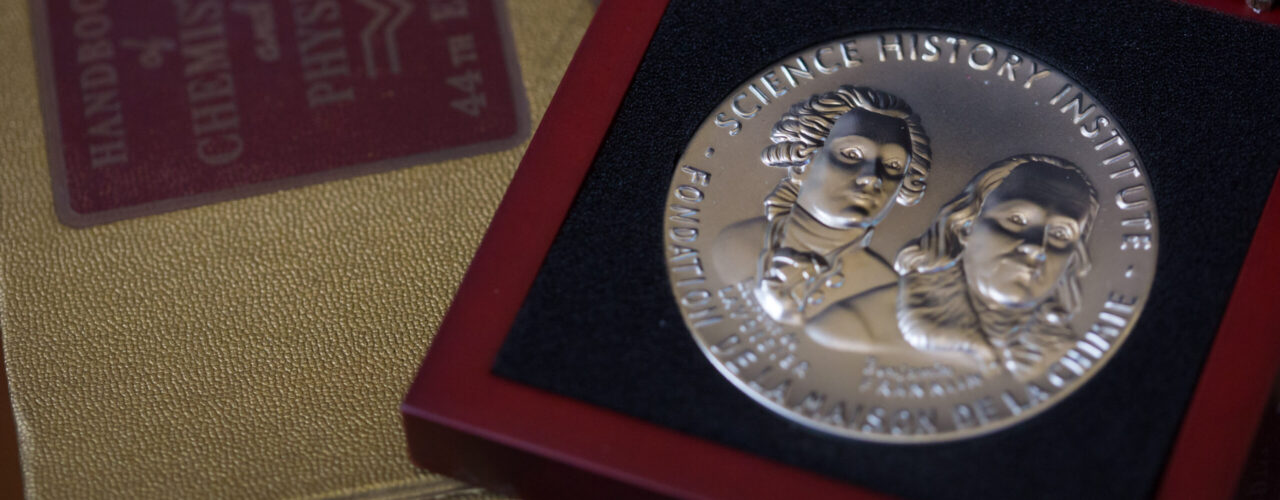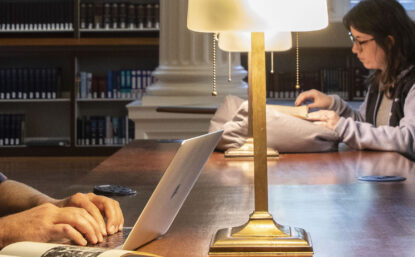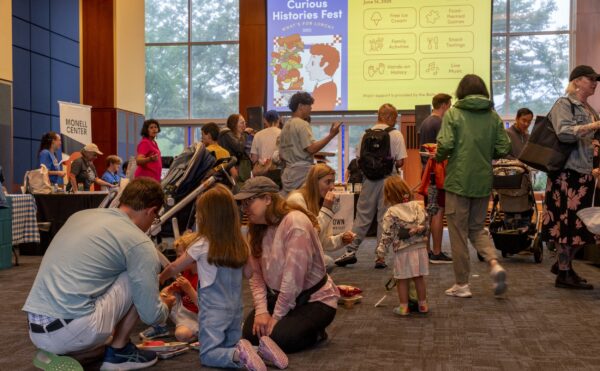
Science History Institute and Fondation de la Maison de la Chimie Announce Winners of 2020 Franklin-Lavoisier Prize
Mary Jo Nye and Alan Rocke will be honored jointly at a ceremony in Paris in February 2022.
UPADTE 6-24-2021: The Franklin-Lavoisier Prize ceremony has been postponed until February 2022.
The Science History Institute and the Fondation de la Maison de la Chimie (Paris, France) announce the Franklin-Lavoisier Prize for 2020 will be awarded jointly to Mary Jo Nye and Alan Rocke. The prize will be awarded at a ceremony at the Fondation de la Maison de la Chimie in February 2022.
Nye is being honored for her contribution to the history of the chemical sciences since the 18th century, mainly in the United States, France, England, and Germany, and to the understanding of the relationship between scientific discoveries and the resulting political and social phenomena.
Rocke is being honored for his historical research on the development of chemistry in Europe in the 19th century, for forging a strong bond with French historians who were also working in this field, and for the publication of many influential works.
Mary Jo Nye is a professor of history emerita at Oregon State University in Corvallis. Her research and teaching have focused on the history of chemistry and physics since the 18th century in Western Europe, the United Kingdom, and the United States, including laboratory science and social and cultural history. One of her current interests is the study of patterns of collaboration and coauthorship, as in comparisons of the research groups led by chemists Michael Polanyi, Linus Pauling, and Dorothy Crowfoot Hodgkin. She has published more than 80 articles, 6 authored books, and 5 edited or coedited volumes. Her first book, Molecular Reality (1972), focused on the French physical chemist Jean Perrin. Recent books include Before Big Science: The Pursuit of Modern Chemistry and Physics, 1880–1940 (1996), Blackett: Physics, War and Politics in the 20th Century (2004), and Michael Polanyi and His Generation: Origins of the Social Construction of Science (2011).
Nye taught at the University of Oklahoma, where she became George Lynn Cross Research Professor in 1991. She was appointed a Horning Professor of the Humanities and professor of history at Oregon State University in 1994, becoming emerita in 2008. Visiting appointments have included the Institute for Advanced Study in Princeton, New Jersey; Churchill College at the University of Cambridge; and the Max Planck Institut für Wissenschaftsgeschichte in Berlin. Nye received the History of Science Society’s 2006 Sarton Medal, and she has been honored with awards from the American Chemical Society, the Society for the History of Alchemy and Chemistry, and the American Physical Society. She is a fellow of the American Academy of Arts and Sciences, a fellow of the American Association for the Advancement of Science, and a member of the Académie Internationale d’Histoire des Sciences.
Nye studied at Vanderbilt University and then at the University of Wisconsin, where she also completed her PhD in history of science in 1970.
Alan Rocke, a professor and emeritus member of the history department at Case Western Reserve University in Cleveland, devoted most of his career as a chemistry historian to the study of chemistry in Europe in the 19th century, specifically in France, Great Britain, and Germany. His academic career was spent almost entirely at Case Western Reserve University, where he joined the faculty in 1978 after completing his graduate studies at the University of Wisconsin. His engaging teaching style earned him the university’s Carl F. Wittke Award for Distinguished Undergraduate Education. Although he retired as emeritus in 2016, he continues to be active in his research and writing.
Rocke has published widely on the development of the science of chemistry in 19th-century Europe, particularly in France, Germany, and Great Britain, with special emphasis on the history of atomic theory in chemistry and on the development of organic chemistry. He has published four sole-authored monographs, two edited books, and dozens of papers in scholarly journals.
Rocke’s publications are eminent in the field. They have opened fruitful avenues of research for many historians. They have been translated into reference publications, valuable both for researchers and for teaching of the history of chemistry. Through his high-quality work he strengthened the links between the United States and France, including among researchers who have devoted themselves to this area of study. Rocke already knew German, but he also learned French so he could read the texts in their original language.
Rocke received an undergraduate degree in chemistry in 1969 from Beloit College in Wisconsin, followed six years later by a PhD in the history of science from the University of Wisconsin, Madison.
About the Franklin-Lavoisier Prize
Named for Antoine-Laurent Lavoisier and Benjamin Franklin, two of the 18th century’s greatest minds, this prize recognizes unusually meritorious efforts in the preservation or promotion of the entwined scientific heritage of France and the United States. Accompanied by a monetary award of €15,000, the Franklin-Lavoisier Prize is awarded alternately in the United States and France every two years.
The Franklin-Lavoisier Prize acknowledges commendable work in the preservation and highlighting of any aspect of our common scientific or industrial heritage in the fields of chemistry and its related applications, the promotion of the history of the chemical and molecular sciences and industries, or the fostering of closer Franco-American ties and the promotion of significant activities in the chemical sciences or industries. Cosponsored by the Fondation de la Maison de la Chimie and the Science History Institute, the two organizations seek to promote public understanding of Franco-American relations in modern and historical science, industry, and economics.
About the Fondation de la Maison de la Chimie
The Fondation de la Maison de la Chimie was created in 1934 in Paris on the centenary of the birth of Marcelin Berthelot. Its goal is building and maintaining a central meeting and working space to promote the popularization of science and was organized for the service of chemists worldwide. To fulfill this mission, the organization provides several services and activities to facilitate cooperation among all those working to promote chemistry as one of the basic disciplines of science and technology.
More News
Science History Institute Welcomes 2025–2026 Beckman Center Fellows
Scholars from around the world will study a wide range of topics in the history and social studies of chemistry, chemical engineering, and the life sciences.
2025 Curious Histories Fest Celebrates School Lunch History with Pickle Tastings, Cooking Demos, Ice Cream, and More
Visitors explore the science of food—and fun!—at Institute’s “What’s for Lunch?” festival.
Science History Institute Launches Library Tour Program
Guided tours of the Othmer Library of Chemical History begin June 18.



